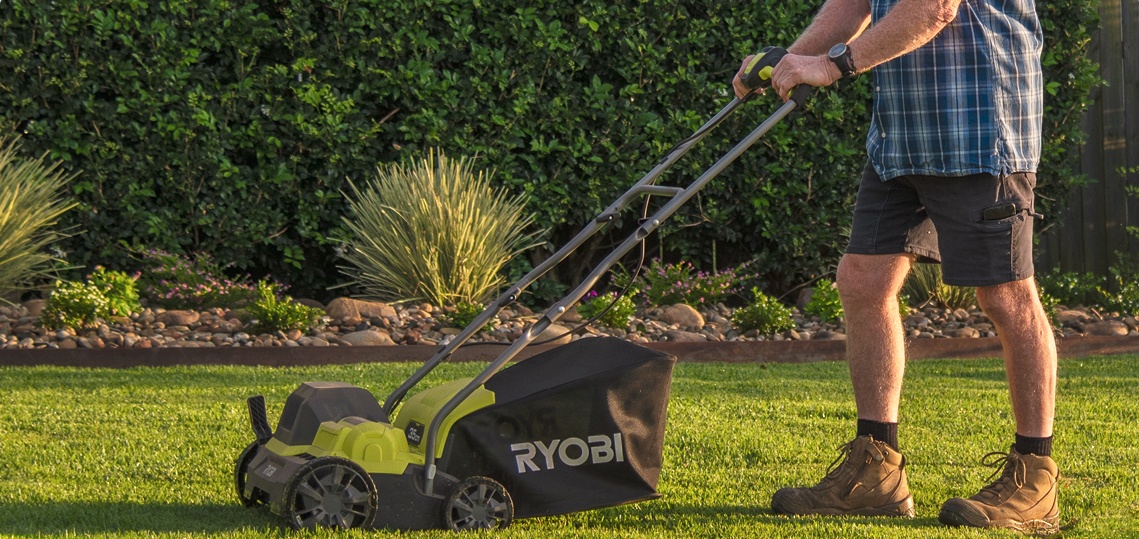Lawn mowing etiquette! Who would have thought right? Proper mowing times are an essential aspect of overall garden maintenance, ensuring a healthy and visually appealing lawn. Did you know that there is such a thing as mowing too early? In this article, we take a look into appropriate mowing times, also influenced by noise restrictions, to ensure you and your neighbours stay on each other’s good side and maintain positive community relationships.
Understanding Lawn Mowing Times
Why Timing Matters
Adhering to the right mowing times is crucial in the practice of regularly mowing your lawn, which is essential for maintaining its health and appearance. Just like electric power tools, powered garden tools, and construction noise, there are permitted hours in Queensland that serve as the ideal guide to when to mow your lawn and ensure that you don’t receive a noise complaint from your neighbours! This could see you fined anywhere up to $3,000.00. You wouldn’t want that whilst trying to maintain a healthy lawn through regular mowing!
Legal vs. Social Expectations
Learning the designated times for Queensland and respecting when it may be too late to mow even when you are still within the noise restriction rules may just help you stay in your neighbours good books and prevent a hefty fine! Expectations for mowing times can vary significantly across different types of residential property, reflecting the community’s standards and local regulations.
Guide to Queensland Lawn Mowing Times
So what time can I mow my lawn?
The Environmental Protection Act 1994 in QLD states that you are permitted to mow your lawn between 7am to 7pm Monday to Saturday. On Sundays and public holidays, you can mow between 8am to 7pm.
Want to know what the other Australian states have to say:
In New South Wales, mow between 7am to 8pm Monday to Saturday. On Sundays and public holidays, you can mow between 8am to 8pm. In NSW these rules have been set out by the NSW Department of Planning and Environment.
In Victoria, you can mow Monday to Friday between 7 am to 8pm. You can mow between 9am – 8pm on Saturday, Sunday and public holidays, according to the Environmental Protection Authority Victoria.
In South Australia, you can mow between 7am to 7pm Monday to Saturday and from 9am to 7pm Sunday and public holidays. These rules have been set out by EPA South Australia.
In Tasmania, you can mow between 7am to 8pm Monday to Friday. On Saturdays you can mow between 9am to 8pm and Sundays and public holidays between 10am to 8pm. These rules have been set out by EPA Tasmania.
In the Northern Territory, you can mow between 7am to 8pm Monday to Saturday and 8am to 8pm Sunday and public holidays, according to the NT EPA.
In the Australian Capital Territory, lawn mowing can be done 7am to 8pm Monday to Saturday and 8am to 8pm Sundays and public holidays, according to Access Canberra.
In Western Australia, generally lawn mowers can be used between 7am to 7pm Monday to Saturday and 9am to 7pm Sundays and public holidays, for up to two hours within these time frames. This is for most regions within WA.
Noise Regulations and Recommended Equipment
Understanding Noise Levels
How noisy is your mower? A typical mower can emit sounds as loud as 80 to 89 decibels (dB). Prolonged exposure brings you closer to the danger zone and increases the risks of hearing damage. Whilst the distance between your lawn mower & your neighbours is enough to protect them from any hearing loss, the noise can be irritating.
Choosing the Right Mower
Hand
Ideal for small, flat lawns, hand lawn mowers are inexpensive, easy to use, and better for the environment. Designs have come a long way, making them a convenient choice that won’t take up much storage space.
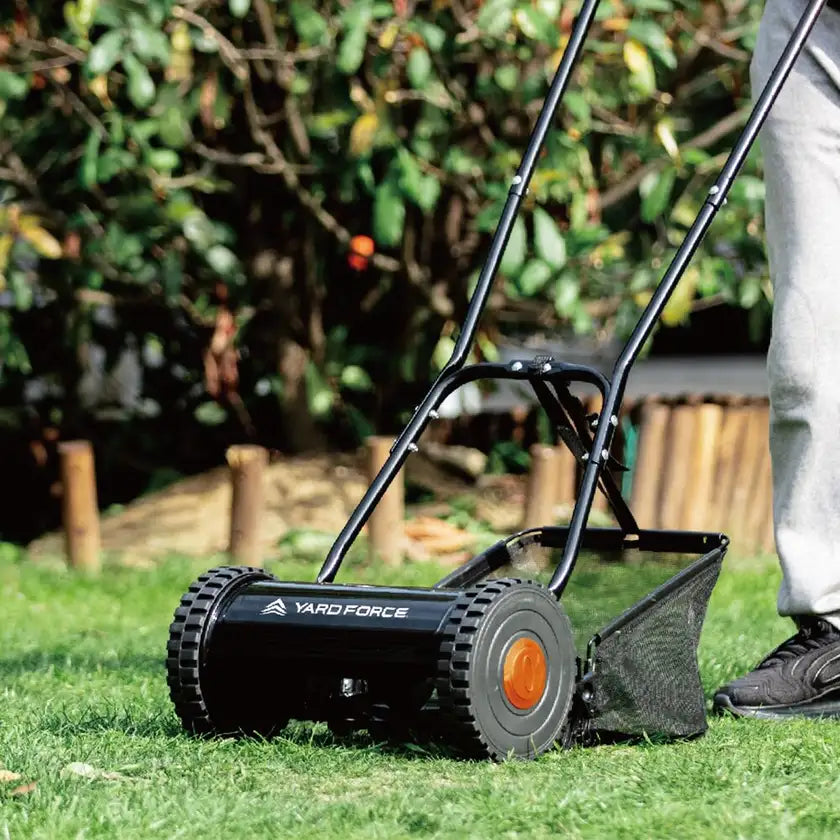
Electric
Better suited to smaller areas, electric lawn mowers are light, portable, easy to store away, and simple to maintain. They do have a cord, which can be a minor hassle to drag around, and you’ll need easy access to a power source.
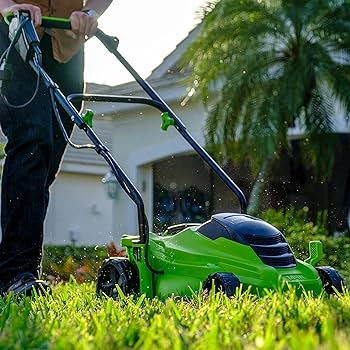
Cordless
Because they’re battery powered, cordless lawn mowers are a convenient way to mow mid-sized areas. They’re a lot lighter for portability and smaller for ease of storage. There’s no petrol to mix and no cords to drag around & batteries generally last up to 90 minutes, giving you plenty of time to get your mowing job done.
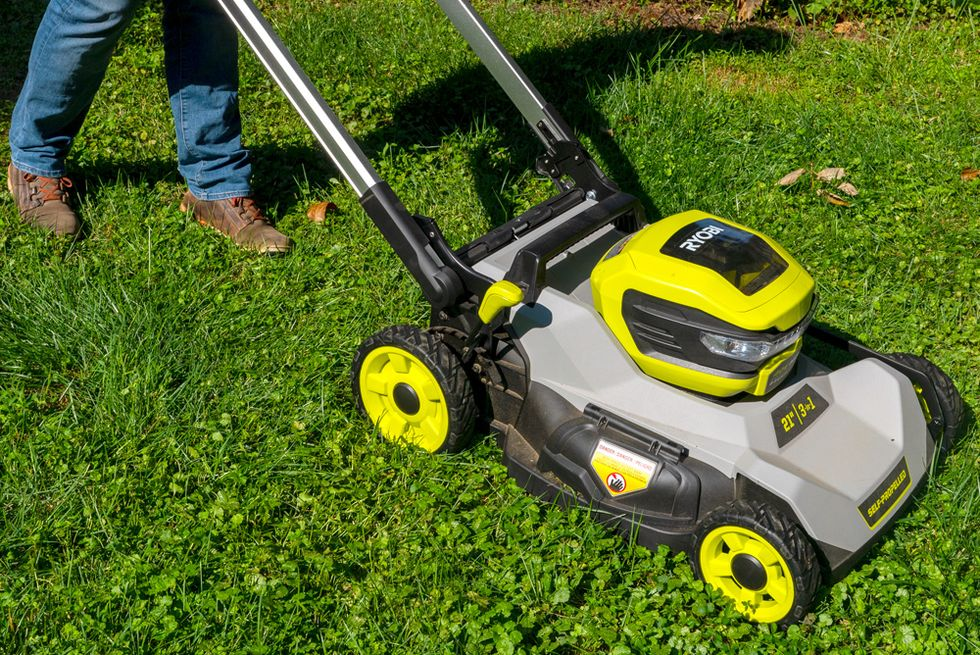
Petrol
If you have a big lawn to cover, petrol is the go! Some are also self-propelled, making them easier to push around large lawns. They’re more powerful than electric or cordless, and have a wider cutting diameter.
There are two types of petrol mower, 2-stroke and 4-stroke. The 2-stroke works best in small to medium areas. 4-stroke are more reliable, easier to start and can handle much bigger lawns. However, the 4-stroke needs a little more care.
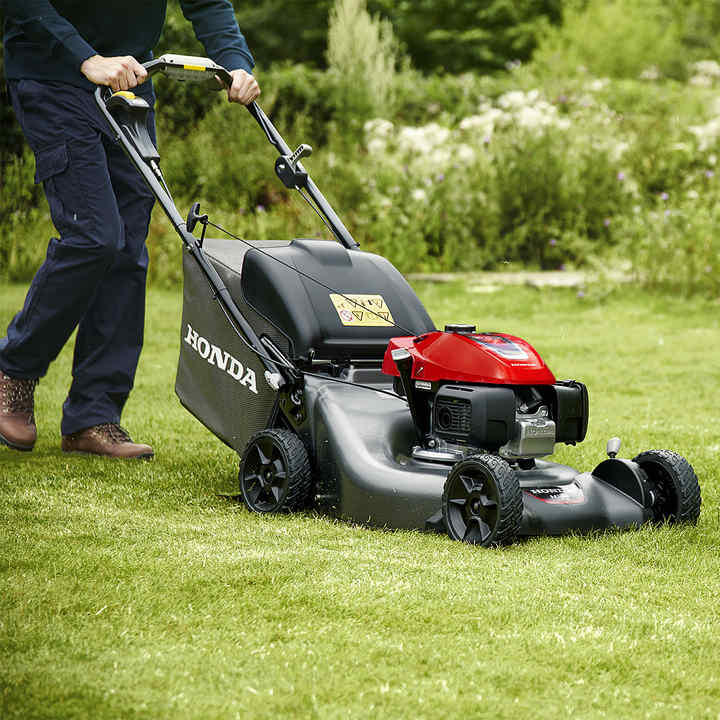
Ride-on’s
For really big areas, like a paddock or oval, a ride-on mower will get the job done. They run on petrol and are a fast, comfortable way to mow.
Environmental Considerations for Lawn Mowing
If you are able to, replacing a petrol powered mower for an electric or battery powered mower will lessen the noise for your neighbours. As well as possibly encouraging more wildlife like native birds to visit your garden.
An awesome new addition to the mowing market would be the automated mowers! This conveniently does it all leaving you with no mowing worries! And is lovely and quiet for your neighbours!
Choosing quieter, less polluting mowers not only contributes to a more peaceful environment but also supports sustainable garden maintenance, ensuring your lawn remains healthy and visually appealing throughout the year.
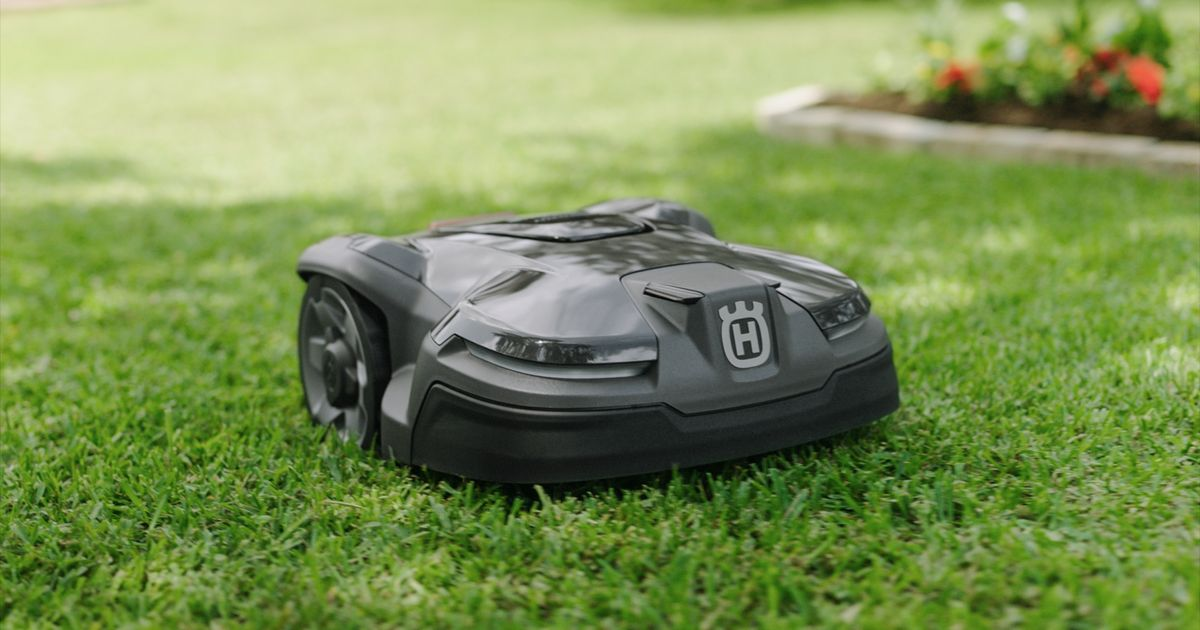
Community Etiquette and Tips for Responsible Mowing
Best Practices for Mowing Without Disturbing Your Neighbour’s
Lawn Mowing Tips:
- Mow in the mornings or afternoons.
- Keep at a consistent pace.
- Mow regularly enough that only one third of the leaf is removed with each pass.
- Ensure your mower blades are sharp & ready to cut!
- Mow when your lawn is dry, avoid mowing when the lawn is wet.
- Mow at the same length & keep it consistent.
- Switch mowing directions each time you mow! A great tip is to follow the face of a clock.
- Keep your mower well maintained and operating properly. For example, a damaged muffler will cause the machine to make louder noises than normal.
Handling Disputes and Complaints
If your neighbours comes to you with a complaint about your lawn mower, always try to stay clam, positive and polite. Focus on the problem, and not the person. Always listen to their concerns and consider them seriously.
Always be constructive and try working on a resolution together and take time to work on the solution and get it right.
If you and your neighbour aren’t able to come to a resolution, then contacting your local council would be the next recommendation.
Conclusion
Don’t be the one waking your neighbours up before sunrise due to your lawn mower noise! Follow the Noise Restriction Rules to ensure you don’t receive any complaints or fines!
